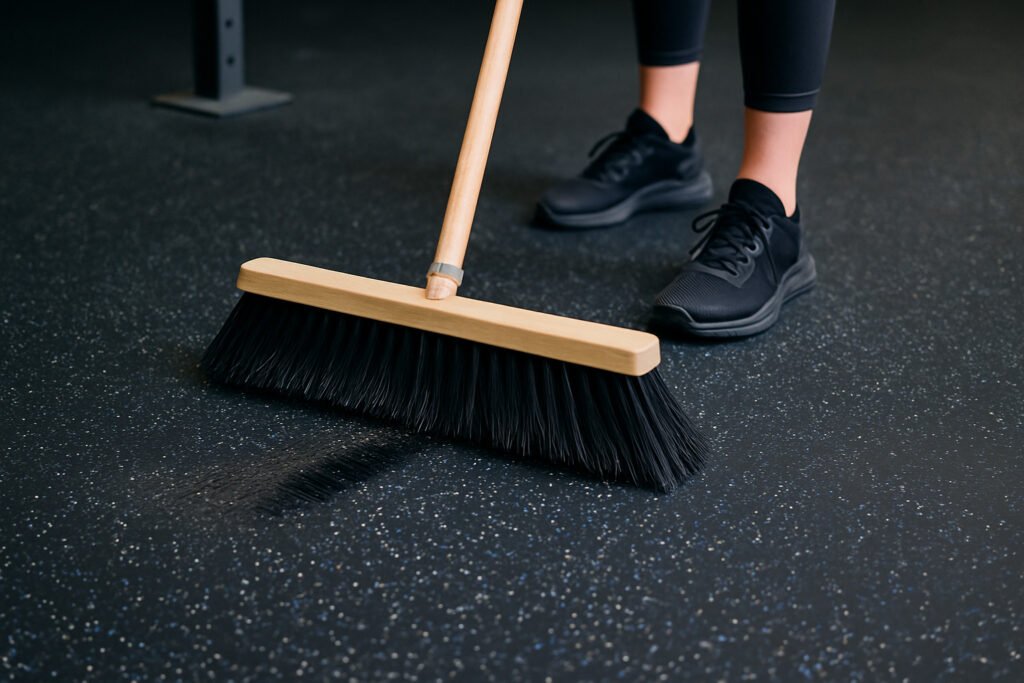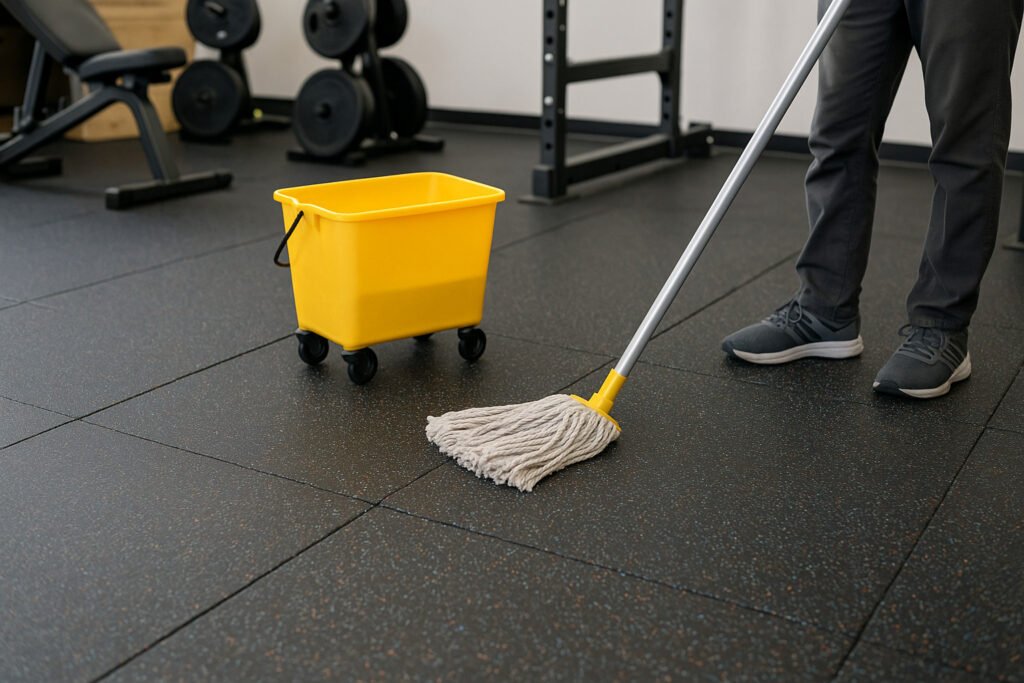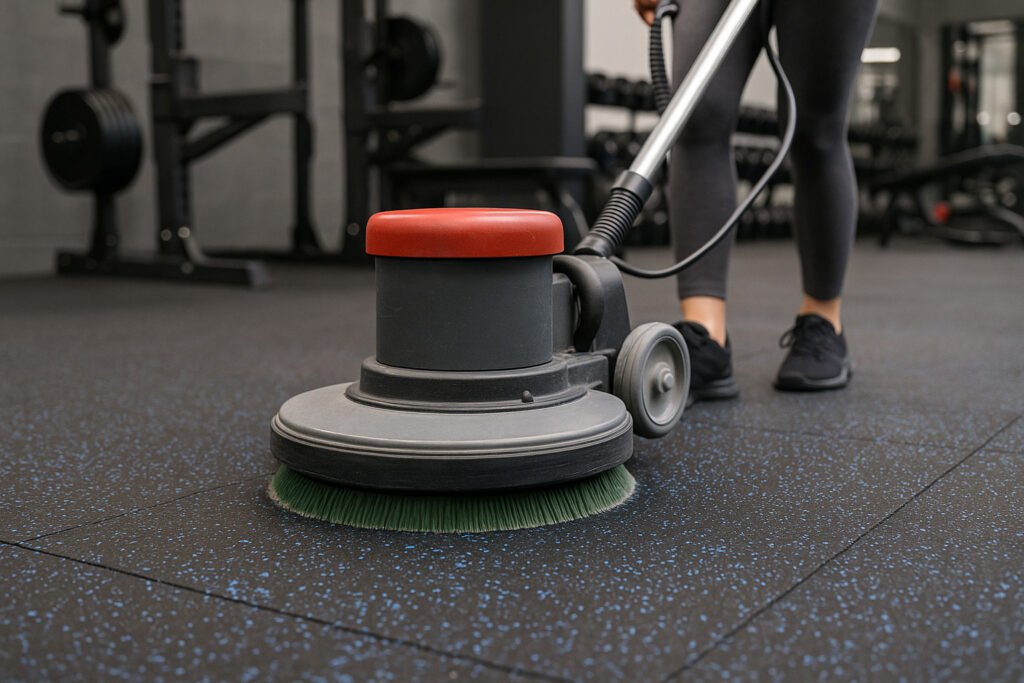How to Clean Rubber Gym Flooring: 4 Easy Steps
Rubber flooring is built tough—but dirt, sweat, and chalk buildup can wear it down faster than any workout.
A simple cleaning routine makes a big difference.
To clean rubber gym flooring: sweep daily, mop weekly with neutral cleaner, deep clean monthly, and spot-treat stains. Avoid harsh chemicals or high-pressure washing.
Whether you’re using tiny granule tiles, composite tiles, or rubber rolls, proper maintenance helps your flooring last longer, grip better, and look more professional.
Step 1: Sweep or Vacuum Daily
Sweeping may seem simple, but it’s your first line of defense.
Use a soft broom or vacuum with a rubber-safe head to remove chalk, dust, and grit every day.

Why it matters:
Small particles act like sandpaper—especially in free-weight zones or near entrances. Removing them daily prevents premature wear and slip hazards.
Step 2: Mop Weekly with Neutral Cleaner
Not all cleaners are rubber-friendly.
Use a damp mop and a neutral pH cleaner once or twice a week.

Why it works:
Neutral cleaners protect the surface.
Avoid bleach or ammonia—they can break down rubber rolls or puzzle tiles, making them brittle or discolored.
Pro tip: Don’t soak the floor. Rubber is non-porous, but excessive water may seep into seams and subfloor if not properly sealed.
Step 3: Deep Clean Monthly
Even if the floor looks clean, buildup from sweat and oils accumulates.
Use a soft-bristle floor scrubber or auto-scrubber with a mild solution once per month.

Best practices:
- Use rotary brush for tiny granule tiles
- Use microfiber pads for composite tiles
- Always rinse and dry thoroughly to avoid slippery residue
Step 4: Spot Treat Stains Immediately
Sweat, scuffs, or protein shake spills? Act fast.
Blot spills with a cloth, then use a diluted rubber-safe spray cleaner.
Avoid:
- Acetone or alcohol-based solvents
- Steel wool or abrasive pads
- Scented soaps or waxes (they leave slippery residue)
For areas with EPDM granules or printed logos, avoid aggressive scrubbing.
Maintenance Tips by Flooring Type
Each floor type has unique care needs. Here’s a quick guide:
| Flooring Type | Focus | Notes |
|---|---|---|
| Tiny Granule Tile | Deep clean monthly | Use rotary brush for textured surface |
| Composite Tile | Weekly mop, spot clean | Rinse thoroughly after cleaner use |
| Puzzle Tile | Edge checks, quick clean | Lift and air out if moisture gets under |
| Rubber Roll | Mop large areas | Use low water, check for edge curling |
Need help choosing a cleaner? Browse our full rubber gym flooring catalog or contact us directly.
✅ Conclusion
A clean rubber floor not only looks better—it performs better.
With just 4 steps—sweep, mop, scrub, and spot treat—you can keep your gym flooring durable, grippy, and looking like new for years.
📩 For product recommendations or cleaning advice, visit Lanhefloor.com
Related Articles:
